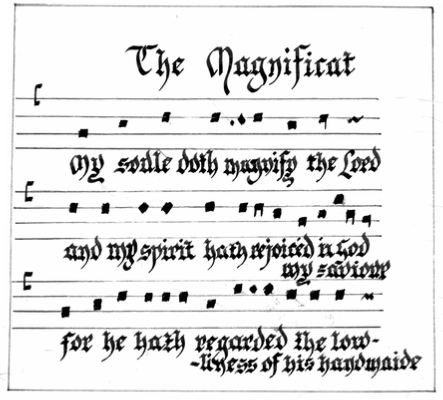



The Parish Church of St George the Martyr, Waterlooville

Seven decades ago, as a boy chorister, Rod would eagerly look forward to the church services on Sunday in order to ‘sing Merbecke’. This was a musical setting of the liturgy, devised nearly 500 years ago for the Anglican church. Thomas Cranmer, Archbishop of Canterbury, had produced his Book of Common prayer in the time of King Edward VI, which (in some modified forms) is still in use today. John Merbecke was asked by the Archbishop in 1550 to produce service music “containing so much of the Order of Common Prayer as is to be sung in Churches” and the result was The Boke of Common Praier Noted.
John Merbecke (c1510-
The music was tuneful and easy to sing, derived from a simplified version of Gregorian Plainchant. It was written on a four-
Festival Edition 2012
Annual Parochial Church Meeting


Older members of the congregation will remember Merbecke’s music with affection. Rod has discovered that a church not far from St George’s still uses it.
Rod Dawson